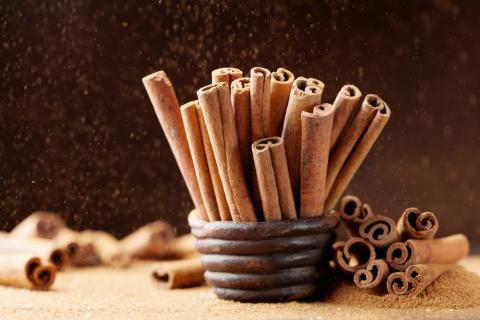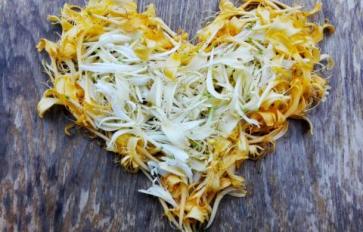
Healthy teeth don’t just make us look good. Our teeth and gums are critical for health. We obviously need our teeth for chewing so that we can break down food in one of the most important steps in the digestive process. Inadequately chewed food leads to many problems down the line. But, did you know that the health of our mouth is linked to heart health as well?
Gum disease, or periodontitis, increases the risk of cardiovascular disease, including heart attack. Periodontitis is caused by toxins produced by bacteria in the mouth. These toxins, and infiltration of bacteria into the gum cells, trigger inflammation of the gums and also of the underlying tissues. This inflammation doesn’t stay just in the mouth, but instead can spread all over the body, including to the cardiovascular system. The bacteria causing tooth plaque may themselves enter the bloodstream and infect the heart, and are also found in atherosclerotic plaque.
So, taking care of your mouth is a big deal, health-wise, aside from the fact that tooth decay can be painful, ultimately resulting in tooth loss or expensive trips to the dentist.
There are many plants to help with oral care, but the six here are my favorites and what I use for myself.
Essential Oils & Oral Care
A note on essential oils, before moving on. They’re popular for oral care and have been used as flavor in commercial toothpastes for decades. But they need to be used properly to avoid burning or otherwise irritating the mucus membranes in your mouth. There are ways to use essential oils safely for the mouth, as part of a homemade toothpaste or added to a tooth powder for brushing. Added to some water as a gargle? Nope…essential oils don’t dissolve in water and you’ll wind up with a blob of oil sticking to the first thing it encounters in the mouth.
Some of the most popular essential oils for oral care are also the most likely to cause burns: cinnamon and clove. So why not just use the plant itself where the oils are not so concentrated and irritating? A tea makes a great mouthwash, as do tinctures diluted in water. Dried plants can even be ground up and used as a tooth powder for use in brushing. Another way to use supportive herbs is making an infused oil for use in oil pulling.
Myrrh
Myrrh’s (Commiphora molmol) history of use for oral care dates back thousands of years.
- Myrrh is used for gingivitis (gum inflammation that results from tooth plaque) and stomatitis (inflammation of the mouth or lips).
- Myrrh helps speed healing of ulcers in the mouth.
- Myrrh is best used as a tincture, diluted in water. It’s not very water-extractable.
Echinacea
Not just for colds and flu, echinacea (Echinacea angustifolia) is a frequent component of herbal mouth rinses.
- Echinacea stimulates an immune response in the mouth even as a rinse, or it can be ingested.
- Echinacea has antibacterial effects against oral pathogenic bacteria.
- Echinacea reduced oral microbial count in a study on preventing pneumonia in intubated patients.
Cinnamon
Cinnamon (Cinnamomum species) is a common ingredient in toothpastes due to its flavor and actions.
- Cinnamon kills oral pathogens, including those contributing to bad breath and those causing gingivitis.
- Cinnamon stimulates healthy blood flow, helping to heal receding gums and strengthen bleeding gums.
- Cinnamon reduced plaque level and gingivitis in a clinical trial.
St. John’s Wort
Much more than an herb for mood, St. John’s Wort (Hypericum perforatum) is also a good herb to have on hand for your mouth.
- St. John’s Wort reduced inflammation and tissue damage associated with periodontitis.
- St. John’s Wort can be used for nerve pain…making it helpful for a toothache when you can’t immediately get in to see the dentist.
- St. John’s Wort may increase bone regeneration after orthodontic procedures. Wish I knew this when I had braces…
Thyme
Perhaps better known as a cooking spice, thyme (Thymus vulgaris) is a great aid for oral care, and even helps as a gargle for sore throat.
- Thyme is immune stimulating.
- Thyme is strongly antibacterial and has inhibitory effect on oral pathogens.
- Thyme is antifungal, so it’s useful for thrush (oral candida infection).
- A component of thyme essential oil, thymol, is an ingredient in Listerine.
Horsetail
Horsetail (Equisetum arvense, E. hymenale), also known as bottlebrush or shavegrass, is an ancient plant. The Equisetaceae family of plants dates back some 350 million years, and the plant does, indeed, look prehistoric.
- Horsetail is a mineral-rich herb that helps remineralize teeth. It’s generally taken as 1 teaspoon of powder a day for about 4 days, then a few days off; then back on, etc.
- Horsetail also soothes inflammation.
- If harvesting your own horsetail, make sure it’s one of the species listed above. There are toxic species in the Equisetum genus. Also, make sure it’s from a clean area, as it will otherwise absorb environmental toxins.
Take care of those teeth and gums, and keep smiling!








